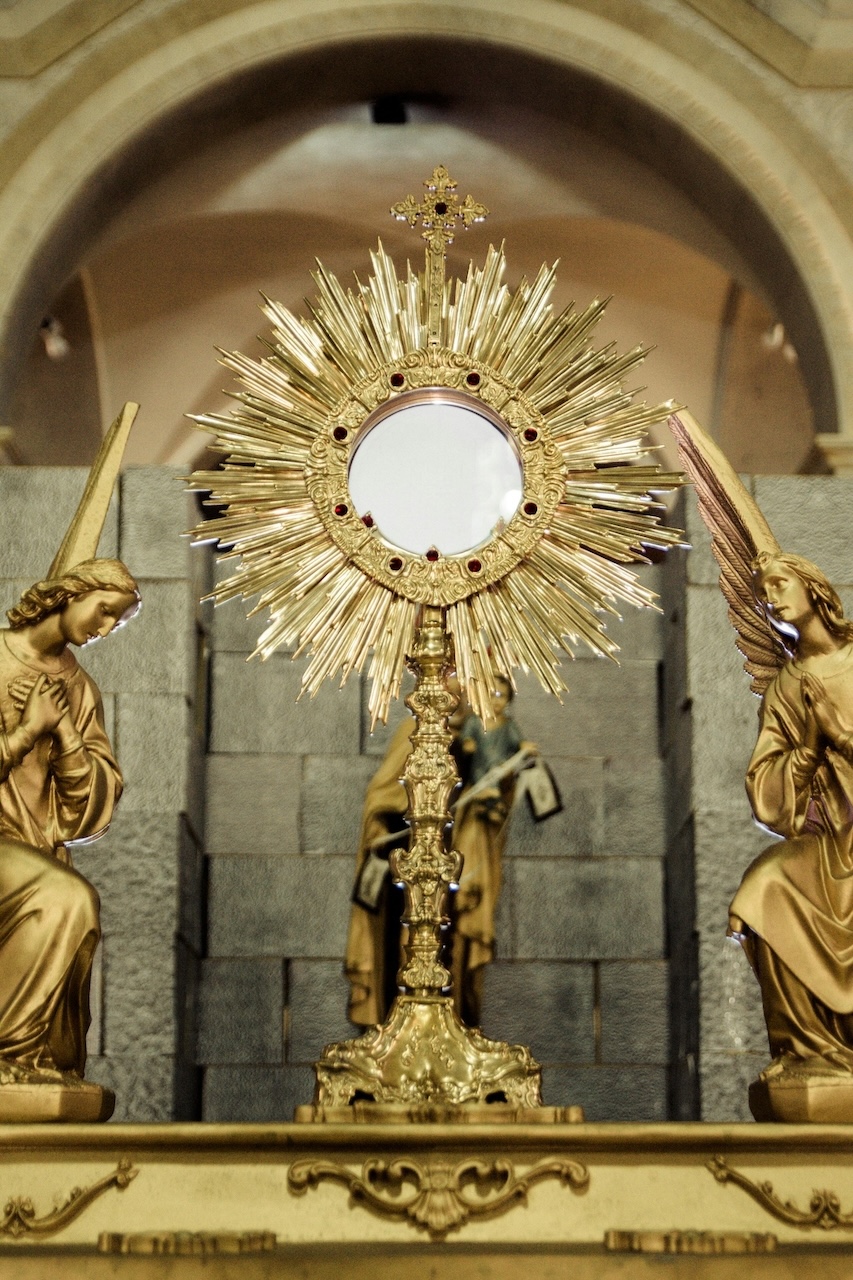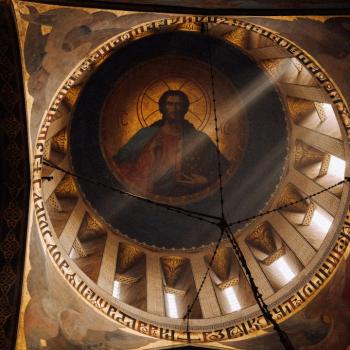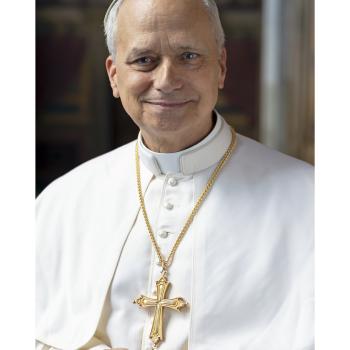Jesus spoke the words of the Institution of the Eucharist and disappeared from their sight. We could almost look at the encounter with Cleopas and the unnamed disciple headed towards Emmaus as the first example of Eucharistic Adoration. This gives us a clue about what happens for us when we adore Christ in the Eucharist.
When we celebrate the Eucharist, we gather around Jesus, but it is not a funeral. However, we do commemorate the sacrifice that Jesus made on the Cross. To understand the context of today’s Gospel, we must understand that these two disciples mentioned at the beginning are the ones that encountered Jesus on the Road to Emmaus. They lost hope and decided to leave Jerusalem, only to encounter the Messiah walking on the same road that was taking them home. After a long conversation about how the Scriptures spoke of Jesus and how it was necessary for the Savior to die, they could not bear the thought of him leaving them. Jesus responds to this great desire by staying with them in his Eucharistic Presence.
Adoration of the Blessed Sacrament
When we come to the Blessed Sacrament for Eucharistic Adoration, we are in the presence of one whom we cannot perceive with our ordinary senses. Rather, we must trust our faith to know who is truly there. We must come with a sense of humility, knowing that while our external senses are important, they do not have the last word.

Tom Sawyer and a Hint at Mysterious Presence
I love the story of Tom Sawyer. He escaped from home to help his Aunt Sally’s slave Jim escape to freedom. While they are hiding out on the island, a search party arrives thinking that they have died. They shoot cannons over the water in the hope that this will somehow bring their bodies to the surface. As we would expect, this does not cause the desired result for two reasons: cannon balls do not bring bodies to the surface, and they were not actually dead to begin with.
Eventually, after being unable to find his body, they conclude that poor Tom has died, and they decide to hold a funeral for him. He finds out about this and decides to attend his own funeral; to Tom, it seems like way too much fun to miss. Although at first, he kept himself hidden from everybody at the funeral, it did not diminish the reality of his presence there. This may be an imperfect analogy, but it reminds me of the presence of Jesus at every Mass.
Disciples on the Road to Emmaus
We need Jesus and Cleopas and the unnamed disciple express this need in a very real way. However, the time for the earthly presence of Jesus was coming to an end, so he knew it was time to make himself present in the same miraculous way that he makes himself present to us in the Mass: in the “breaking of the bread.”
The two disciples recounted what had taken place on the way, and how Jesus was made known to them in the breaking of bread (Lk. 24:35).
“Breaking of the Bread” as a Technical Term
We hear “breaking of the bread” and perhaps think of a communal meal. However, in the New Testament, particularly in the writing of St. Luke, this phrase becomes a technical way of referring to the Eucharistic Celebration.
One of the earliest names for the Eucharistic celebration is the breaking of the bread (Lk 24:35; Acts 2:42, 46) (USCCB, “Liturgy of the Eucharist”).
This comes out in the passage when Jesus stops at the inn with the disciples on the way to Emmaus. Just imagine what it must have been like when Jesus sits down with the two disciples to eat and once he pronounces the words of the Institution of the Eucharist, he “disappears” from their sight. But is he really gone? Though it may seem like it, he remains with them, albeit under the species of the bread and the wine. He thus makes himself present sacramentally to them as the Eucharist for them to eat, so they might enter communion with the living God.
When the primitive community of the first Christians come together, St. Luke describes them in the book of acts as people who “devoted themselves to the teaching of the apostles and to the communal life, to the breaking of the bread and to the prayers” (Acts 2:42).
Consolation for Troubled Hearts
Just as the disciples on the way to Emmaus were troubled, Jesus notices the suffering hearts of the men he finds in the Upper Room. He makes it his mission to comfort them and to encourage them. This is what he also does for us each day in the Sacrament of the Eucharist, which is why the reality of Eucharistic Adoration is such a moving gift. We should really find time every week, or even every day, if possible, to pray in front of our Eucharistic Lord. While it is a privilege to be with Jesus when he is solemnly exposed, even praying in front of a tabernacle where the Blessed Sacrament is reposed, the trip is well worth our time. We must use these opportunities to grow in our love for Jesus in the Eucharist.
Testimony of Eucharistic Adoration
Nora shares her story of the power of Eucharistic Adoration.
I have been praying during my weekly hour of Adoration, over many years, for my husband to return to Mass and the Sacraments as he has been away from them for 26 years. He didn’t even enter the church when our children were making their first Holy Communions and Confirmations. On a wet and very cold winter’s day he dropped me down to the Adoration Chapel for my holy hour and asked me to hurry out after the hour as he wanted to go to an important meeting. After the hour he came to collect me and waited outside in the car. After waiting for an extra twenty minutes, he lost patience and ran into the Adoration Chapel to hurry me out. I pretended not to see him and he sat down very impatiently for some minutes.
Finally, I got up and left and he came speedily after me. I was expecting a lot of anger and complaints because I stayed longer than the hour and kept him waiting. Having got into the car he turned to me, and said, calmly and quietly, “I am not going to that meeting I mentioned but instead I am going the priest in the Parochial house and going to ask him to hear my confession. Something came over me as I entered that Adoration Chapel, and I feel God calling me back again,” He got confession that day and became a daily mass goer and a weekly Adorer for the very first time. I put this down to the power of prayer in front of the Blessed Sacrament (Testimonies and Comments from People who have experienced weekly Eucharistic Adoration).
I love the stories of the Resurrection and I feel convinced that part of their power is to increase in us the devotion to the Eucharistic Lord and our desire to participate in Eucharistic Adoration.
What are your thoughts? Please comment below.













